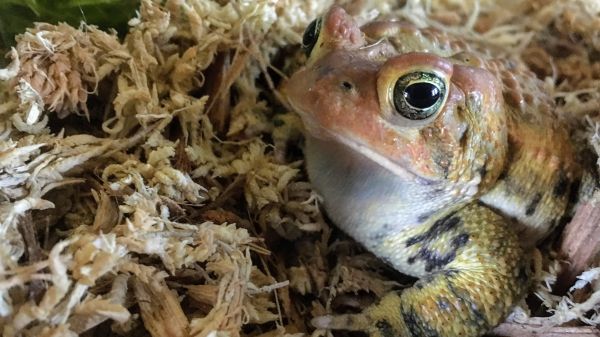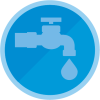Off to a Gross Start

Have you ever noticed how many vivid childhood memories contain someone squealing, “Ew, gross”? When you’re a kid, gross doesn’t automatically equal bad. Gross is interesting. It’s novel. It’s the genesis of a story.
I vividly remember a pudgy, brown toad peeing on my hands. I’m not sure if it was the first time I had scooped up a toad out of the grass in the backyard, but it definitely wasn’t the last. I knew the risks when I picked him up and I accepted them bravely. I’m sure I exclaimed, “Ew, gross” as the warm liquid hit the heel of my hand and ran down my wrist, but any momentary repulsion was well worth it.
The toad was so cute, but cute doesn’t capture the experience. A photo of an animal can be cute, but the whole, multi-sensory experience adds up to something more than that, even if you don’t have words for it as a child.
The toad was just the right size for my small right hand as my left one cupped over the top, exerting gentle pressure to keep him there for a few precious moments. He felt slightly squishy underneath but delightfully bumpy on top. His eyes sparkled golden brown. His tiny toes tickled my palm.
Likely my dad was nearby, working in the yard, keeping a watchful eye on the proceedings. He encouraged my interest in toads, turtles, snakes, mice, and the robin who laid tiny blue eggs in its nest near our driveway. He appreciated all those things too, though he never forced any particular interests on my brother or me. Instead, he answered questions when we asked them and encouraged curiosity in general.
The backyard was a treasure trove of fascinating living things, and a gateway to the woods, which contained even more fascinating living things. There I climbed trees, dug holes, and watched tadpoles swish about in a vernal pool. On the hottest summer days, the trees provided a pleasantly cool wonderland.
In those days I didn’t know the names of trees, or even different animal species, beyond the few most common like garter snakes and white-tailed deer. I didn’t know how these lifeforms fit into a taxonomic hierarchy or the local ecosystem. I could not have told you what an indicator species was or how human actions affected habitats.
Kids today seem to know these things. They can spout off wildlife facts and talk assuredly about the threats to natural spaces. That’s wonderful. But sometimes you experience things long before you know how to talk about them.
It was many years later that I was volunteering in the nature center at a county park. My role was caring for the resident education animals: an eastern screech owl, a few snakes, a pair of box turtles, a rose-haired tarantula, and a Jefferson’s salamander. There was also a huge American toad named Toadily, who would eat mealworms straight out of my hand. I fed the animals, cleaned up their habitats, and sometimes got to handle them in front of delighted guests of all ages.
This once-a-week occupation provided a welcome alternative to an unrewarding full-time office job where morale was low. To be doing work that was appreciated, even if I wasn’t being paid for it, felt satisfying, especially since I got to spend time around animals (the staff of the nature center said “thank you” frequently and sincerely, which meant the world).
The eastern screech owl, Starlight, lived in a small room with a tile floor. If you’ve ever spent time around birds, you know they poop a lot, and wherever they want. Part of caring for Starlight meant mopping her floor. One day, I was working on a particularly large and stubborn mute—fancy talk for owl poop. I had to saturate the area with the sponge side of the mop, then flip it over to the side with the plastic scraper and really get in there. As I made gradual progress, I thought to myself, “I would rather be doing this than my regular job.”
I had to stop and repeat the thought as if I had misheard myself. Clearly, this sentiment said something about the job I had at the time, which I quit soon after. However, it also said something about the role of caring for animals. If it’s something you’re driven to do, the rewards outweigh even the parts that most people would find repulsive. I wonder if I would feel this way if not for those early experiences of peeing toads.
Caring for education animals means, in turn, that other people get to benefit from interactions with those animals.
Through regular education programs, many free of charge, the park introduced adults and children alike to valuable new experiences with Starlight, Toadily, and the others. These brief experiences hold the potential for lasting impact—perhaps a family goes on to put up an owl box in their own yard, or a child develops empathy to last throughout life.
No matter what I do for a “day job,” I will always give my time to organizations that care for wildlife and share the wonder with humans. Nothing is more fulfilling than interacting with an animal up close, feeding it, cleaning up after it, addressing it by name. If it pees on you, you just wash your hands. Animal care is tactile, visceral, and often gross—in the best possible way. For me, it started early in the backyard and grew into a lifelong commitment.

